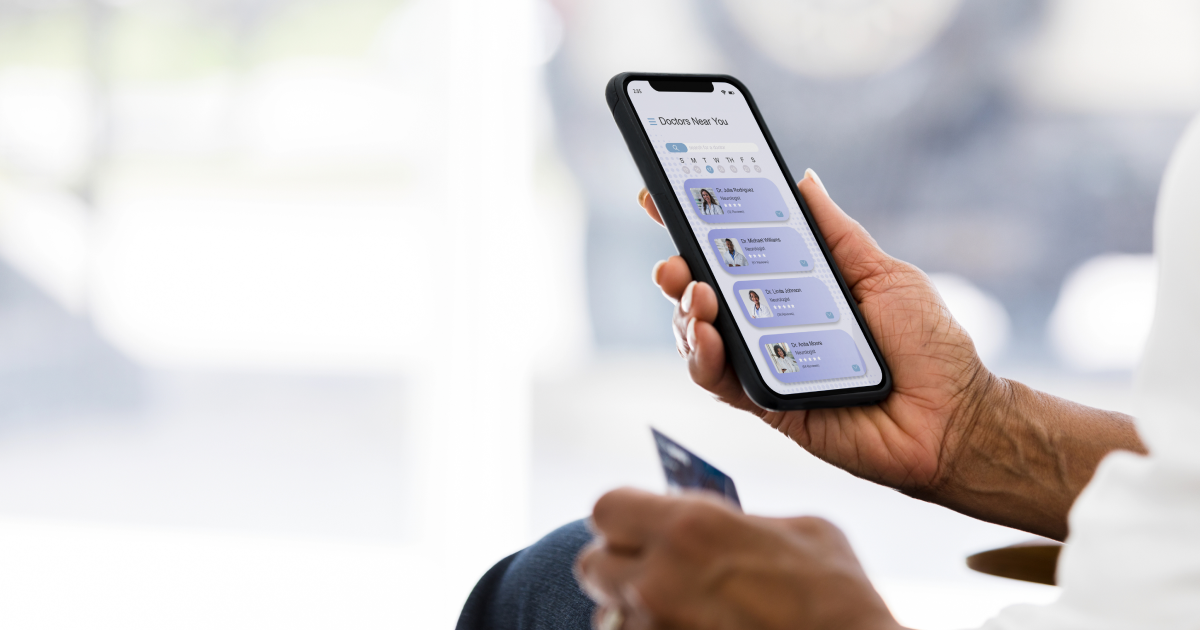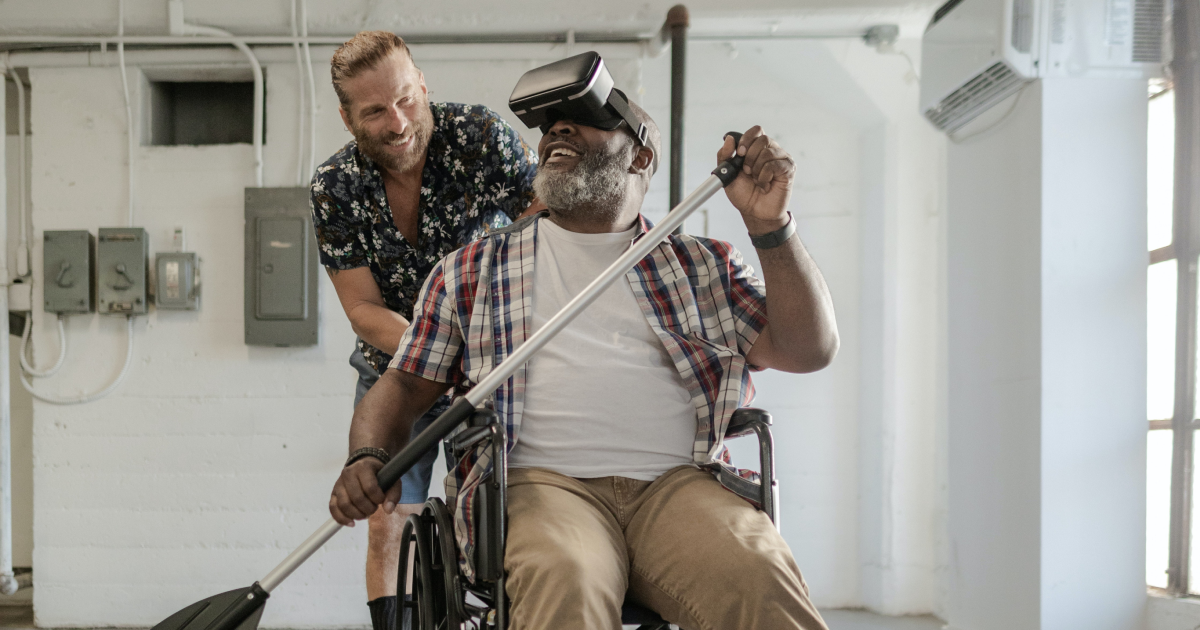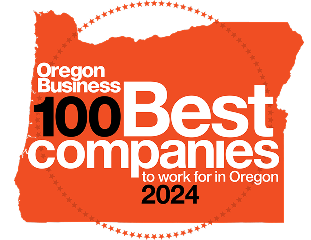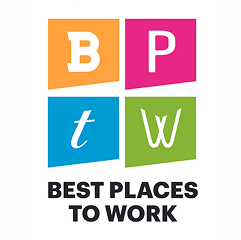A guide to healthcare app development
The advent of smartphones has led to the proliferation of mobile applications across virtually every industry. In the custom healthcare software development sector, this shift has ushered in a host of mobile apps intended to benefit doctors and patients.
Healthcare app development has become an integral part of the medical and wellness industries, especially in the space of simplifying processes and improving the patient experience. The potential benefits of digital health apps include enhanced health data accessibility, increased remote health delivery, fewer medical errors, reduced expenses, and enhanced communication.
For those seeking a healthcare mobile app development company to help make your digital health innovation a reality, here is some insider guidance to help you choose the right partner in healthcare app development.
What are the main types of healthcare apps?
Healthcare apps can be divided into two categories. Those in the first category, composed of healthcare apps for professionals, specialize in accessing healthcare records, suggesting diagnoses, and prescribing medications. The second category, used in clinics and personal healthcare, comprises healthcare apps for patients.
Medical apps: for professionals
Apps designed for medical professionals focus on supporting the diagnostic process with analytical data. These products can be costly, as compliance with testing and regulatory requirements can lengthen and complicate the development process. The purpose of these medical apps is to give users access to electronic health records and patient data.
Many healthcare apps aim to improve communication between medical personnel and patients while streamlining clinical operations. Some examples include medical personnel communication apps, patient communication apps, medical records apps, barcode scanner apps, medicine dosage apps, e-prescription apps, EHR and EMR apps, appointment apps, medical training apps, and telehealth mobile apps.
These apps help medical professionals simplify their work, access medical records, and improve communication. They also allow patients to access telehealth services, book appointments, and receive updates on their medical conditions.

Health apps: for patients
Health apps are intended for the general public and provide access to medical information, prescriptions, and daily health data tracking. They are both cost-effective and beneficial in terms of health and wellness management.
Healthcare apps can benefit medical workers and patients by supporting communication, medical records access, medicine dosage tracking, e-prescriptions, appointment scheduling, medical training, and diagnosis. Future development opportunities abound in this healthcare app category.
Patients can use healthcare apps to manage their health and wellness, monitor their health, and identify potential health issues. Fitness and wellness apps, medical reference apps, telehealth apps, medical reminder apps, and women's health apps are examples of these types of solutions. They provide invaluable support and guidance, particularly for those suffering from chronic illnesses or other medical issues.
What are the main differences between health and medical apps?
Medical and health apps have distinct functionalities and features, and they are aimed at different audiences. Medical apps are designed for healthcare professionals and require specialized training and knowledge. In contrast, healthcare apps are intended for the general public and include features such as exercise tracking, diet tracking, and mental health support.
Due to the sensitive nature of medical data, medical apps are subject to strict regulatory requirements and data privacy and security standards. In contrast, healthcare apps are subject to general privacy laws. Additionally, while medical apps aid in patient care and clinical decision-making, healthcare apps assist people in managing their health and wellness.
A guide to healthcare app development
The process of developing a healthcare app is divided into several stages. The following are the main steps of creating a healthcare app:
1. Identify the problem your app will solve
To create a valuable and successful healthcare app, the first step is to identify a substantial problem experienced by doctors, nurses, patients, or general health-seekers, and strategize ways your app might solve them. To ensure your product addresses a real and unmet (or poorly met) need, there are a few questions you will need to answer early on. What problem will your app try to solve? For whom? Is anyone else already trying to solve it? If so, how would your solution do it better?
It’s fine (and necessary) to have hypotheses about these questions, but before committing to any details about your solution’s design, features, or target users, you’ll want to check your assumptions and deepen your understanding of the space you plan to enter. Which brings us to our next step…
2. Conduct market research
The importance of market and user research cannot be overstated. A thorough, thoughtful, and open-minded research phase, sometimes called “Discovery,” is essential to the product design cycle. During this process, researchers should strive to understand their potential users, including their characteristics, roles, pain points, needs, and wants. This phase should also involve identifying potential competitors, analyzing their applications, and evaluating their strengths and weaknesses.
Not all healthcare apps on the market are unique; many duplicate the functions of other apps without providing additional value to end-users. Understanding the existing competitors in the space is crucial for developing a successful healthcare app business model. Who is your competition? Have others tried to address the problem and failed? Why? If you have competitors, how do they attract customers? What will set your solution apart?
Based on this research, you can create a list of essential MVP and additional (future) features for your healthcare app.
3. UI/UX Design
With healthcare relying more heavily on technology, it is crucial to prioritize the UI design of healthcare applications. Consider the needs of the different types of users who will interact with your solution and account for how to address their primary needs, or “user stories”. UI and UX design must work together to maximize engagement.
Your app should be simple, practical, and visually appealing to capture users' attention. For mHealth apps, user-friendliness and easy navigation with seamless UX are critical. An experienced, professional digital product designer should be able to fulfill these needs without issue, if given well-defined goals and sufficient research context.
High quality product development agencies make user experience a top priority, knowing that an app's design significantly impacts its overall usability. Digital partners' success is contingent on the product they create. When evaluating potential product designers to partner with in creating your solution, spend some time reviewing their portfolios and case studies to ensure you find their work functional and visually appealing.

4. Build an MVP
When developing a mobile app, the common mistake is aiming to build the perfect app from the start. While it can be hard to let go of the idealized, fully-formed version of your product that you envision, digital products rarely include all the features their creators imagine in their first release–and generally, that’s a good thing. The costs and complexity of developing a healthcare app can be high, particularly for resolving significant problems and developing apps across multiple platforms for multiple users. This may lead to delays and make it difficult to launch the product.
Entering the market with a simpler version, known as a minimum viable product (MVP), can allow you to get your solution out more quickly, and at lower expense. It also provides the opportunity to learn more about your users before designing and adding new features, increasing their likelihood of success.
Building and MVP provide the following advantages:
- Building a simple app with only core functionalities is quicker and less costly to accomplish, allowing you to release it to your target audience sooner. This proof of concept can then be used to secure additional funding to build your solution’s feature set over time.
- Launching an MVP allows you to receive early feedback from users, which is valuable in shaping future app iterations. This will help you build customer relationships and improve the app based on their feedback.
- By developing a manageable MVP, you can bring your product to market faster and test your marketing strategy. Marketing and sales are essential components of the success of any mobile app. It is easier to make necessary adjustments in branding, positioning, and targeting your audience if you go to market quickly.
5. Testing and feedback
The primary goal of developing a mobile healthcare app is to introduce the app's initial version to the market quickly. You should update subsequent app versions based on user feedback and strategic vision. By following this approach, you can prevent significant errors and financial losses that could arise if the entire product is launched at once.
To achieve this, you can utilize various techniques, such as beta tests, distribution tests, user comments, and app ratings, to gather valuable information and improve your ongoing strategy for the project. After the app's development, it is crucial to conduct tests to ensure its functionalities, performance, and security. This process involves functional testing, performance testing, and security testing.
Incorporate necessary improvements based on user requirements and feedback.
6. Monetization
There are several possible revenue models available to digital solutions in the healthcare market. Most healthcare apps on Google Play and the Apple App Store are free to download, but employ other monetization models once users start engaging with them. The most common monetization models for healthcare apps include freemium, content monetization, in-app advertising, in-app purchases, data monetization, partnerships and promotions, sponsorship, and subscription. Often, a combination of models is used to maximize revenue generation.
Ultimately, the success of a monetization model will depend on factors such as the app's target audience, unique features, and marketing strategy.
Things to consider when planning to develop a healthcare app
Here are some of the most important factors to consider when creating a healthcare app:
Exceptional design
As healthcare apps directly affect users' health and well-being, user experience and design are especially important when developing healthcare apps. Users may become frustrated and/or make potentially harmful mistakes when using a poorly designed healthcare app. On the other hand, a well-designed healthcare app can increase user engagement, adherence to treatment plans, and overall health outcomes.
When designing a healthcare app, the primary considerations should include:
- User Needs: The app should be designed to meet the specific needs of the target user group. These may include language, literacy level, level of internet access, and cultural background considerations.
- Data Security: Healthcare apps should be designed to protect sensitive user data, such as personal health information, from unauthorized access or breaches.
- Usability: The app should be easy to use and navigate, with clear instructions and intuitive design elements.
- Accessibility: The app should be accessible to users with disabilities, such as visual or hearing impairments, through assistive technologies.
- Functionality: The app should provide users with the necessary functions to achieve the product’s goals, such as medication reminders, appointment scheduling, or symptom tracking.
- Feedback and Support: The app should provide users with feedback and support, such as personalized recommendations, to help them achieve their health goals.
- Compliance: Healthcare apps should be designed to comply with relevant regulatory requirements, such as HIPAA in the United States, to protect user privacy and confidentiality.
By considering these factors during the design process, healthcare app developers can create practical and user-friendly apps, improving their users' overall health outcomes.

Safety first: Guidelines and regulations
Developing a healthcare app requires compliance with a variety of regulations intended to ensure the privacy and security of electronic health information. If you are planning to create a mobile health application in the US, you must ensure compliance with the following guidelines and regulations:
- The Health Insurance Portability and Accountability Act (HIPAA) sets the standards for managing patient data in the US, and compliance with these rules is necessary for healthcare app approval.
- The Health Information Technology for Economic and Clinical Health Act (HITECH Act) covers the privacy and security of electronic health information and is incorporated into the HIPAA Final Omnibus Rule.
- Compliance with guidelines from the National Institute of Standards and Technology (NIST) is necessary when dealing with electronic health records in the US.
- The California Consumer Privacy Act (CCPA) extends customer rights for digital security, and other states are expected to follow in enacting similar laws in the future.
Guidelines in Canada:
- Canada's most authoritative informational privacy legislation is the Personal Information Protection and Electronic Documents Act (PIPEDA).
Guidelines in the EU:
- The European Union has its own data protection regulations, starting with the General Data Protection Regulation (GDPR).
In the early stages of planning your healthcare app architecture and layout, paying attention to data encryption, authentication requirements, app expiration policies, and risk mitigation is essential. You will also need to make a Privacy Policy available in its app store listing (for users to check before downloading) and during onboarding (the first interactions with the downloaded app).
Compliance with HIPAA, HIMSS, FDC, CCPA, GDPR, NIST, HITECH, and PIPEDA is crucial to ensure healthcare app security and legality, which is why it should be at the forefront already during the planning stages.
Ensure interoperability
Health app developers must ensure hospital mobile apps are compatible with existing health systems. This enables seamless operation among various health systems, allowing healthcare providers to access patient records, test results, and scans without difficulty.
The interoperability of medical platforms can directly impact the quality of care provided. For example, patients do not have to wait for time-sensitive treatments when they can retrieve relevant information quickly. On the other hand, a lack of health solution interoperability can impede clinical decision-making and create additional challenges for healthcare payers, patients, and providers.

Use next-gen technologies
The healthcare industry in the US is currently working through a difficult transition, wherein the legacy systems still in use in many major care environments have been dramatically outpaced by the rapid technological advancements that occur every year. As you develop your mobile healthcare app, it is crucial to ensure that your product is designed in a way that allows it to incorporate emerging and future technologies, including:
- Internet of Medical Things (IoMT), which describes systems of using sensor-enabled devices and wearables to generate and transmit healthcare data to healthcare systems.
- Wi-Fi-enabled devices to help reduce in-person visits while allowing for the secure transfer of medical data.
- Artificial Intelligence (AI) and Machine Learning (ML), which are being used to automate tasks, hold the potential of facilitating remote operations, efficiency gains, and diagnostic improvements. Potential applications of AI and ML in healthcare apps include image analysis, research and education, chatbots, predictive analysis, precision medicine, and drug discovery.
- Blockchain technology can securely share patient data, address interoperability issues, and track medicine in the supply chain.
- Virtual reality (VR) and augmented reality (AR) can be used for remote mental health therapies, surgeries, and medical education and training.
- Big data, which includes healthcare records that can now be collected through IoT and processed by AI algorithms to provide diagnoses and treatment options.
The cost of mobile health application development
The cost of developing a mobile healthcare application can vary greatly depending on several factors, such as the complexity of the solution, the platform(s) it will be developed for, the applicable regulatory requirements, and the development team's experience
Typically, the cost of developing a mobile healthcare application can range from $10,000 to $500,000 or more. Simple applications with limited features, such as a medication reminder app, may cost less to develop than complex apps requiring integration with other systems or cutting-edge technology.
It's also important to note that ongoing maintenance and updates to the application will incur additional costs, which should be factored into the overall cost of development.
Ultimately, the best way to get an accurate estimate of the cost of developing a mobile healthcare application is to consult a reputable app development company and discuss your specific requirements and needs.

How to secure investments
Securing investment is crucial to ensuring a healthcare app's success. However, there are several steps you can take to help establish a solid foundation to present to potential investors, increasing the chances of securing funding. Before seeking investors, consider the following:
Develop a detailed business plan
A well-thought-out business plan is crucial to securing investment. Your plan should outline your target market, revenue streams, and marketing strategy, among other things. Create a detailed business plan outlining your business strategy, and be prepared to produce the research and calculations that went into creating it..
Build a prototype
Building a prototype or an MVP of your app can give possible investors a clear picture of the product and its potential impact. Furthermore, gathering feedback from potential users via the prototype allows you to improve the design and features of your app. A robust prototype is more likely to secure funds than a polished presentation because it can demonstrate your idea's feasibility and the benefits your product can offer medical professionals and patients alike.
Create a strong team
A team with a mix of technical and business skills can help instill confidence in potential investors. Consider hiring developers, designers, and healthcare experts to help build a well-rounded team. Or, if you can’t afford to bring these capabilities in-house right away, it may make sense to contract with a digital product agency with experience in health tech. Working with a team of professionals with experience in healthcare, app development, and business management can help you develop and scale your app.
Show evidence of market demand
Convincing potential investors that there is a market for your healthcare product is vital to securing funding. Conducting thorough market research can aid in this process by offering proof of market demand. By conducting market research, you determine your healthcare app, pinpoint prospective competitors, and keep up with market trends.
Protect your intellectual property
Filing for patents, trademarks, and copyrights is critical to protecting your company's intellectual property. Patents protect the technical aspects of your app design and features, trademarks protect the brand and associated symbols, and copyrights protect the creative content of your app. Legal protection can help prevent unauthorized use and infringement by competitors, which is critical for maintaining your app's value and reputation.
Establish partnerships
Identifying potential healthcare industry partners, such as hospitals or insurance companies, can help your healthcare app in various ways. Collaboration with healthcare organizations can provide valuable insights into the needs of your target audience, access to a more extensive user base, and resources to improve the features and functionality of your app.
Collaboration with healthcare partners can also assist you in developing effective marketing strategies and obtaining insurance coverage for your app, making it more accessible to patients.
Where to find investors
External financing may be suitable for two stages of your healthcare startup. The first is when you have a promising idea that has been partially validated, and you now need additional funding to develop the product (called “seed” funding). The second case is when you already have a functional product but want to enhance it by taking it through clinical validation and financing the regulatory processes (usually considered “series A” or “series B” funding).
Once you have validated your idea and have evidence of market demand, you can start raising funds in the following ways:
Seek out venture capital firms
Many venture capital firms specialize in investing in healthcare technology startups. Research firms specializing in healthcare investments, identify ones whose goals align with your product’s use, and seek out opportunities to pitch your idea using your business plan and prototype.
Attend startup events
Attending startup conferences and networking events can help you meet potential investors and partners in the healthcare industry, allowing you to establish valuable relationships and gain insights and feedback to help refine your business strategy.
Consider crowdfunding
Utilizing crowdfunding platforms, such as Kickstarter and Indiegogo, can enable you to secure investments from a broad range of individuals, which can be valuable for validating your healthcare app concept. This approach has gained popularity among startup founders seeking to raise donor funds.
If your healthcare app is consumer-oriented, and you are confident that you can fulfill the promised perks to your backers, crowdfunding could be an effective strategy.
Equity crowdfunding
This may be the most effective method for many healthcare startups to raise capital quickly. Unlike traditional crowdfunding, this approach involves raising funds in exchange for equity or shares in your business. Before listing your offer on an equity crowdfunding platform, you will typically undergo a screening process to ensure that you are a suitable candidate, which may involve providing financial plans or outlining your business strategy.
Self-funding
If your healthcare app has the potential to generate profits quickly, self-funding could be a suitable option. Although this approach may not allow for dynamic growth comparable to venture-capital-backed businesses, and it carries significant risk for your personal financial, it also enables complete control of your company.

Choosing your healthcare app development company
Partnering with a specialized software development company can be an efficient and effective strategy for building new healthcare apps and augmenting existing ones. Employing an external team of designers and/or engineers can accelerate the development process and allow in-house teams to focus on other aspects of building their business.
The best design and development agencies should be able to guide businesses from app concept to launch and beyond, providing valuable input based on previous experience. Healthcare companies may be hesitant to work with external partners, but specialized development agencies possess collective knowledge from building hundreds of similar apps, making them valuable partners for healthcare app development.
When choosing a healthcare app development partner, here are some top things to look out for:
- Experience and Expertise: Look for a partner with relevant experience and expertise in developing healthcare apps. Check their portfolio and ask for references to ensure they have a successful track record.
- Compliance: The healthcare industry is highly regulated, so it's crucial to choose a development partner that is well-versed in regulatory compliance requirements, such as HIPAA and GDPR.
- Security: Healthcare apps contain sensitive data, so choosing a development partner that prioritizes safety and has experience implementing robust security measures is crucial.
- Communication: Clear communication and transparency are essential to ensure the development process goes smoothly. Look for a partner who communicates clearly and regularly and provides timely updates.
- Collaboration: Choose a partner willing to collaborate with you and who understands your needs and goals. They should be able to provide guidance and advice while working closely with you to achieve your objectives.
- Cost-effectiveness: Healthcare app development can be expensive, so finding a partner who provides high-quality services at a reasonable price is essential. Cheapest is rarely best, so focus instead on price transparency, and ensuring that your contract includes a detailed scope of work and clearly defined responsibilities for your team and theirs.
- Shared values: When evaluating potential partners, consider how they present their values and ensure they align with yours. A shared value system increases the likelihood of a successful and productive collaboration.
Considering these factors will help you choose a development partner to help you build a successful healthcare app that meets your business and regulatory requirements.
Key takeaways
The development of healthcare applications is complex because of the heavily regulated nature of the industry, the need for seamless communication between different healthcare systems, the intricate nature of healthcare, the requirement for privacy and security, and the necessity to work with existing legacy systems.
Overcoming these challenges demands a wealth of expertise and experience in healthcare app development. While working through these complexities, app creators will need to consider compliance, interoperability, user experience, security, integration, and testing. By keeping these aspects in mind throughout the development process, developers can create top-quality healthcare apps that cater to the needs of patients and healthcare providers alike.
Finding a partner with expertise in healthcare app design and development can help you successfully tackle these challenges and turn your vision into an existing product.





























